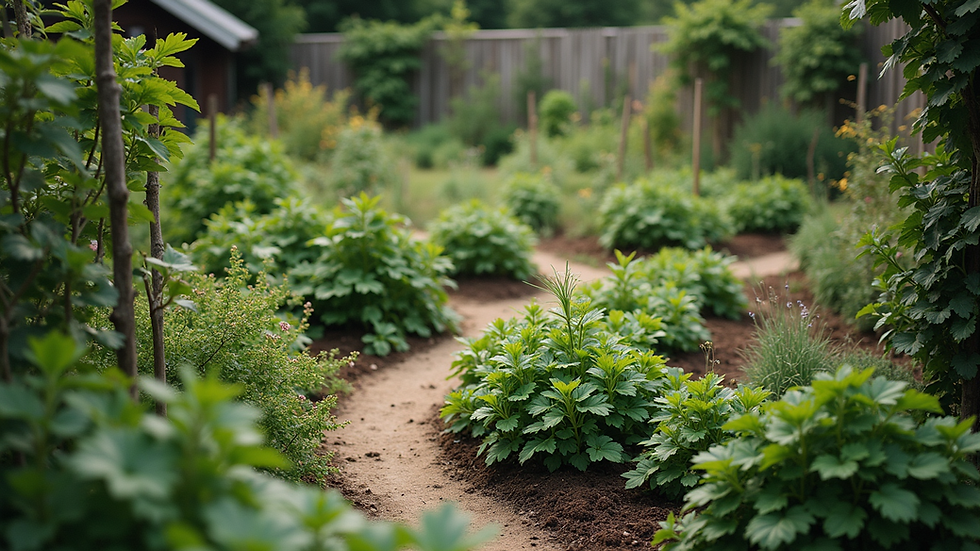Why Are Police Raids Targeting Cannabis Instead of Supporting Legal Home Growing for Safer Medicine?
- HEMPrOLLIE
- Nov 1, 2025
- 3 min read
The debate over cannabis legalization is more than just a discussion about laws—it's about personal freedom, health, and community well-being. As police raids on illegal cannabis operations make headlines, it’s important to consider an alternative: allowing individuals to grow their own cannabis. This could lead to safer consumption and a real decrease in the black market. This post explores the benefits of home growing, the current state of cannabis laws, and why supporting personal cultivation could be a better approach than ongoing police raids.

The cannabis landscape is changing rapidly, with an increasing number of places moving toward legalization. Despite these advancements, law enforcement continues to target illegal grow operations, often resulting in large police raids. These actions lead us to question law enforcement's priorities and whether allowing personal cultivation can offer greater benefits.
Personal cultivation offers consumers a clear advantage: control over what goes into their medicine. Many are concerned about the safety and quality of cannabis products available in stores. For example, a survey showed that approximately 60% of cannabis users worry about harmful pesticides in commercially produced cannabis. By growing their own plants, individuals can avoid harmful additives and ensure they are using a product that meets their standards for safety.
The black market for cannabis thrives partly because of restrictions on growing cannabis at home. When individuals cannot legally cultivate their own, they often resort to illegal dealers who may prioritize profit over quality and safety. This puts consumers at risk and continues to fuel a cycle of crime that law enforcement is trying to dismantle.

Allowing individuals to grow their own cannabis could substantially diminish the demand for illegal products. In places where home growing is permitted, like Colorado, studies have shown a 30% drop in illegal cannabis sales after laws were changed to allow personal cultivation. This means less crime related to drug trafficking and more law enforcement resources available for serious issues that impact community safety.
Another point of comparison arises when we consider tobacco cultivation, which is legal and widely accepted. Despite clear health risks, tobacco has fewer regulations than cannabis, which is known for its potential medicinal benefits. This inconsistency raises questions about the credibility of current regulations and their alignment with public interest.
The opportunity for home growing also extends beyond individual benefits; it can enhance public health. When individuals cultivate their own cannabis, they become more informed about the plant and its effects. This knowledge can empower consumers to make better health decisions. In fact, educational outreach programs in legal states have shown that individuals who grow their own cannabis are 40% more likely to understand dosages and effects compared to those who buy from dispensaries.
The economic potential of legal home cultivation warrants attention as well. Legalizing personal growing can spark local economic growth. Individuals may share their skills through workshops, leading to community events that not only foster collaboration but also raise awareness about responsible cannabis use. The networking created in these environments can build a more engaged society.

Nonetheless, some express concerns about home growing leading to access for minors or misuse of cannabis. These worries can be addressed through proper regulations, just as we manage alcohol and tobacco sales. Age restrictions and public awareness campaigns can provide the necessary framework to ensure responsible use.
Regions like Canada and various U.S. states serve as examples of successful home cultivation legislation. Following legalization, these areas have observed safer markets and better public health outcomes. This evidence suggests that with the proper systems in place, home growing can coexist with laws aimed at protecting community safety.
In summary, ongoing police raids focused on cannabis operations highlight a critical flaw in the current approach to cannabis regulation. Rather than concentrating on enforcement, there is a compelling need to support legal home growing. This change could lead to safer consumption, a decrease in black market activity, and empowered individuals.
As the conversation around cannabis continues to grow, it's crucial to champion policies that prioritize public health and personal freedom. The future of cannabis regulation should empower individuals to make informed choices, promote community engagement, and support responsible use, ultimately creating a healthier and more equitable society.




Comments